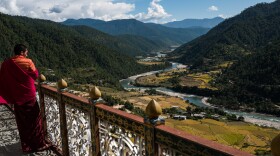I can read and write English. But many of my fellow Bhutanese refugees can’t.
Most approved recommendations for staying safe during this pandemic are written in English. And because many refugees never had the opportunity to learn to read Nepali, they can’t even make use of advice written in their own language.
Instead, they rely on dangerous hearsay.
For instance, instead of wearing masks, some drink liquor, believing doing that will kill the virus. Others eat ginger or garlic for the same reason. Or inhale steam with Vicks.
Even seeking telehealth during this pandemic is daunting. Imagine trying to make sense of directions in a language you don't understand for which button to press to find a nurse. Even if you managed to find the correct voicemail box, no one would understand your message spoken in Nepali.
Before, refugees could turn to resettlement agencies for help. But now, these agencies are closed indefinitely.
So what can be done? Immigrants desperately need people who look like them, speak their language and understand their culture to help them get vitally important information, necessary testing, and treatment.
I recently hosted some Facebook Live sessions with doctors, including one with a Nepali physician. That session has already been viewed more than 35,000 times. One viewer from Ohio sought me out to ask if I could help get treatment for his Massachusetts relative with COVID-19 symptoms.
Medical professionals should team up with community health workers to deliver messaging that refugees, immigrants and other forced migrants can actually understand. Community health workers are also in the best position to identify sick people in their community, and help them get the testing and treatment they need.
Using community health workers in this pandemic is in the best interest of all of us.
Bhuwan Gautam is a certified community health worker and a Bhutanese refugee community leader in Springfield, Massachusetts. Versions of this commentary have already appeared at MassLive and the Boston College School of Social Work.








